Whiplash
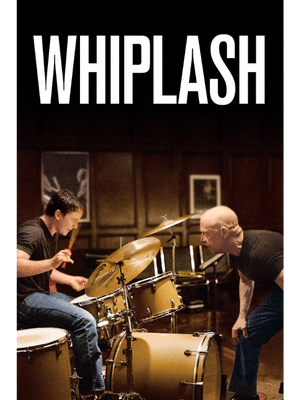
2014, Drama/Music, R, 1h 46m
Table of Contents
What Is Whiplash About?
A talented young drummer is pushed to the brink of his abilities by his abusive instructor.
Why You Should Watch Whiplash
Whiplash is a riveting film that explores the competitive and often cutthroat world of jazz music through the eyes of a young drummer named Andrew Neiman. The film’s central character is played by Miles Teller, who delivers a captivating performance that perfectly captures the emotional and physical toll of pursuing excellence in the arts.
The film’s story is driven by Andrew’s relationship with his mentor, Terence Fletcher, an abusive and demanding instructor who pushes his students to their absolute limits. Fletcher is played by J.K. Simmons, who delivers a tour de force performance that earned him an Academy Award for Best Supporting Actor. Simmons perfectly embodies the ruthless and uncompromising nature of the character, creating a sense of tension and unease that permeates the entire film.
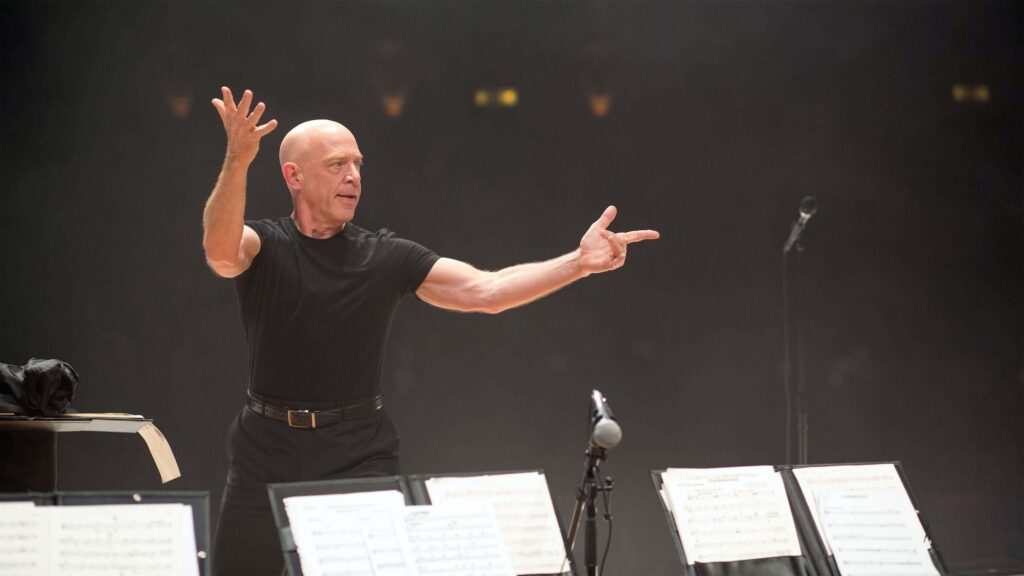
One of the most remarkable aspects of Whiplash is its pacing and structure. The film moves at a breakneck pace, with tight editing and a sense of urgency that perfectly captures the high-stakes world of jazz music. The drumming scenes, in particular, are expertly shot and edited, with close-ups on the characters’ hands and faces creating a sense of physical and emotional intensity that’s hard to match.
The film also explores a number of powerful themes, including the price of ambition and the line between pushing oneself to greatness and pushing too far. The psychological toll of Fletcher’s extreme teaching methods is palpable throughout the film, as Andrew struggles to balance his desire for success with the toll it’s taking on his mental health.
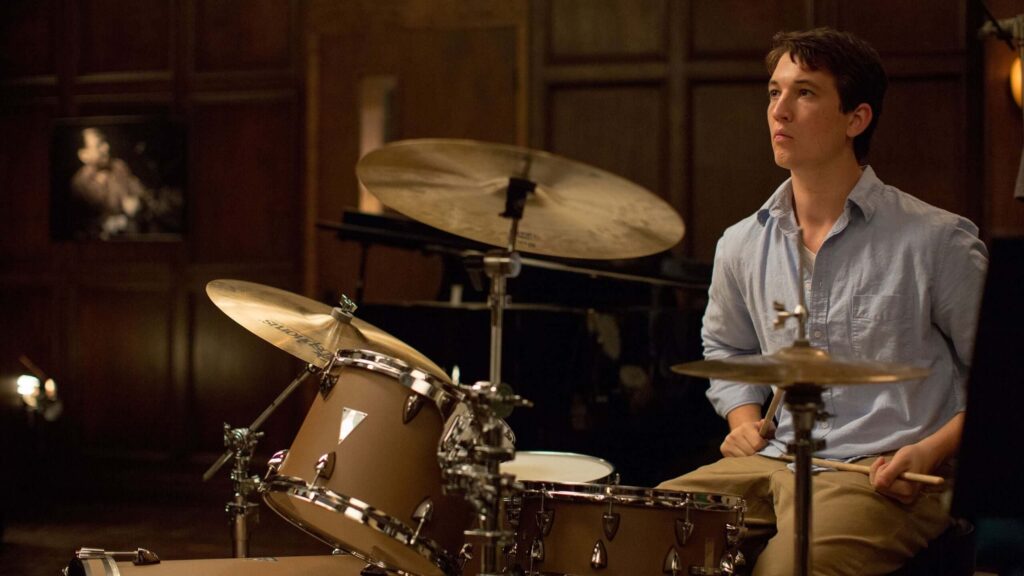
The Theme of Whiplash
One of the key themes of the film is ambition. The film portrays the extreme lengths to which people will go to achieve their goals. Andrew Neiman, the main character, is a talented young drummer who dreams of becoming a great jazz musician. His ambition is what drives him to practice for hours on end, push himself to the limit, and endure the abuse of his instructor, Terence Fletcher. However, as the film progresses, it becomes clear that Andrew’s ambition may be leading him down a dangerous path, and that his pursuit of greatness may come at a high cost.
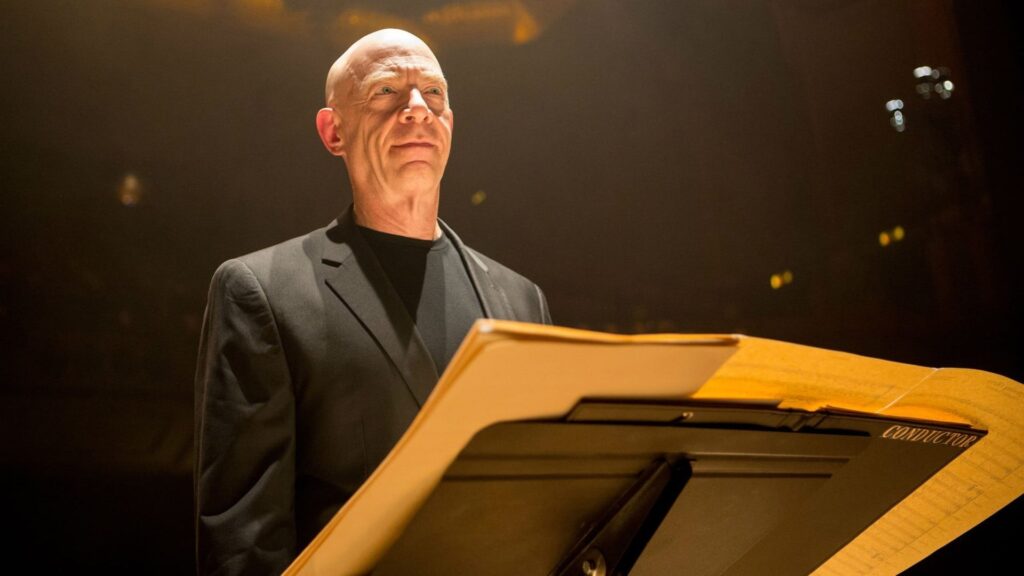
Another important theme of the film is the price of success. Whiplash explores the idea that achieving success in the arts often comes at a high cost. In the film, we see the toll that Fletcher’s extreme teaching methods take on Andrew’s mental health, as well as the strain that his pursuit of excellence puts on his relationships with his family and friends. The film raises important questions about whether the pursuit of success is worth the sacrifices that must be made along the way.
Lastly, Whiplash explores the role of discipline and motivation in achieving greatness. The film shows that while discipline and motivation are important tools for achieving success, they can also be taken too far. Fletcher’s abusive teaching methods are a clear example of this, as they push his students to the brink of physical and emotional exhaustion. The film also suggests that discipline and motivation must be balanced with a sense of compassion and empathy, both for oneself and for others.
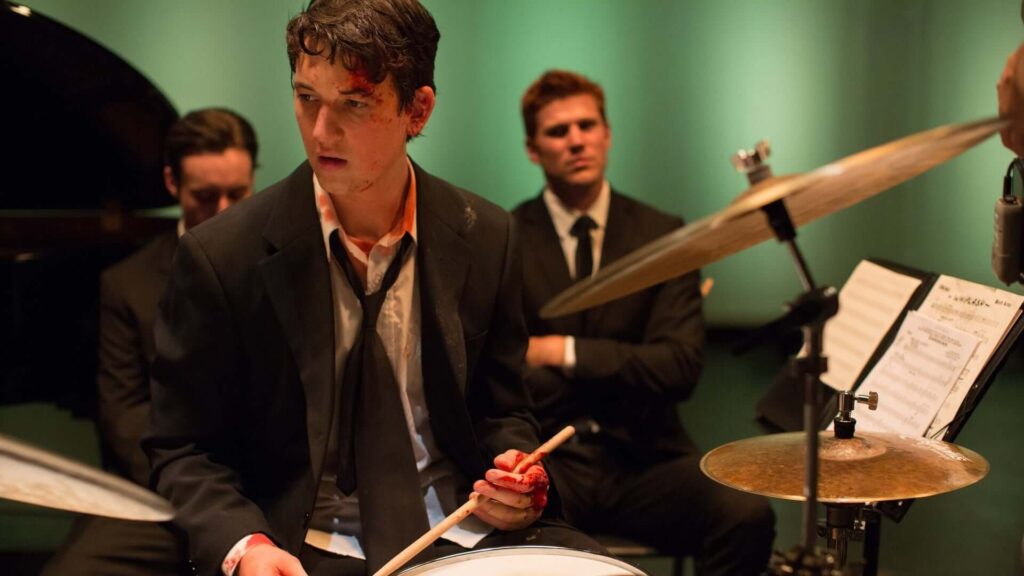
The Cinematography of Whiplash
The cinematography in Whiplash is an important aspect of the film’s storytelling, emphasizing the intensity of the musical performances and the relationships between the characters. The camera work features a combination of close-ups, handheld shots, and dynamic camera movements, all of which create a sense of immediacy and energy that’s essential to the story.
Throughout the movie, the camera is often trained on the characters’ faces and hands during the drumming scenes, capturing the sweat, strain, and emotion that goes into the performances. The tight shots on the characters’ faces create a sense of intimacy and intensity, allowing the audience to feel like they’re right there with the musicians. The close-ups on the drumsticks hitting the drums and cymbals help convey the complexity and precision of the music, as well as the physical demands of playing the drums.
In addition to the close-ups, the cinematography in Whiplash also features a lot of fast-paced camera movements, which add to the sense of urgency and momentum of the story. The camera often swoops in and out of the action, creating a feeling of chaos and unpredictability that mirrors the emotional roller coaster of the characters.
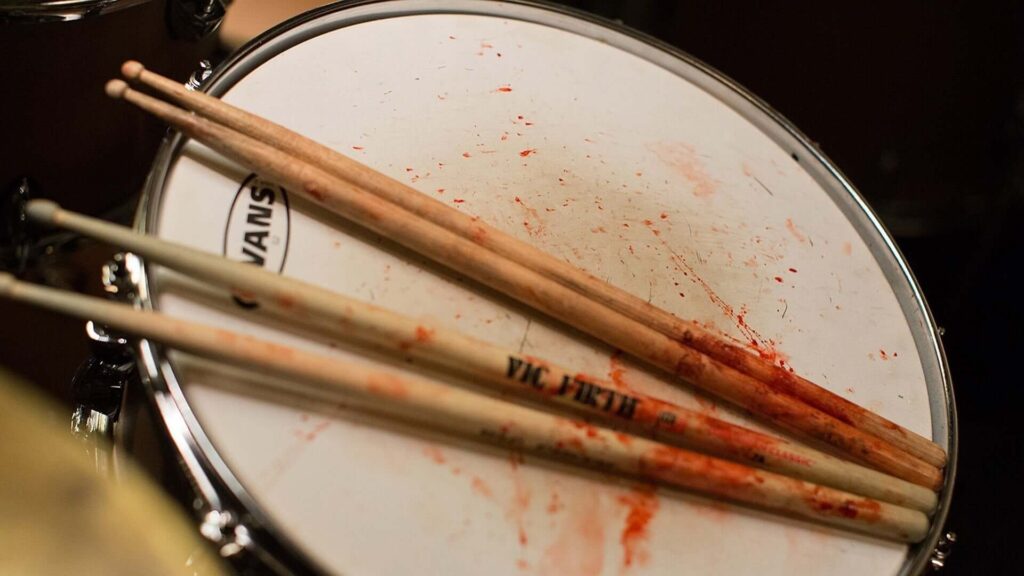
The Soundtrack of Whiplash
The soundtrack of Whiplash is a central element of the film, with the music playing a crucial role in the narrative and character development. The film’s score, composed by Justin Hurwitz, features a mix of original jazz pieces and classic jazz standards, with a focus on drumming and percussion.
The music is used to highlight the contrast between the two main characters: Andrew, the ambitious young drummer who is determined to become one of the greats, and Terence Fletcher, the abusive and tyrannical instructor who pushes Andrew to his limits. The jazz pieces that Andrew performs are characterized by complex rhythms and challenging time signatures, reflecting his drive to achieve greatness and prove himself to Fletcher.
In contrast, Fletcher’s musical selections are often classic jazz standards, played to perfection by his band, which serves to highlight the difference between his approach to music and Andrew’s. While Andrew is focused on innovation and pushing the boundaries of jazz, Fletcher is more interested in preserving the tradition and ensuring that his band plays flawlessly.
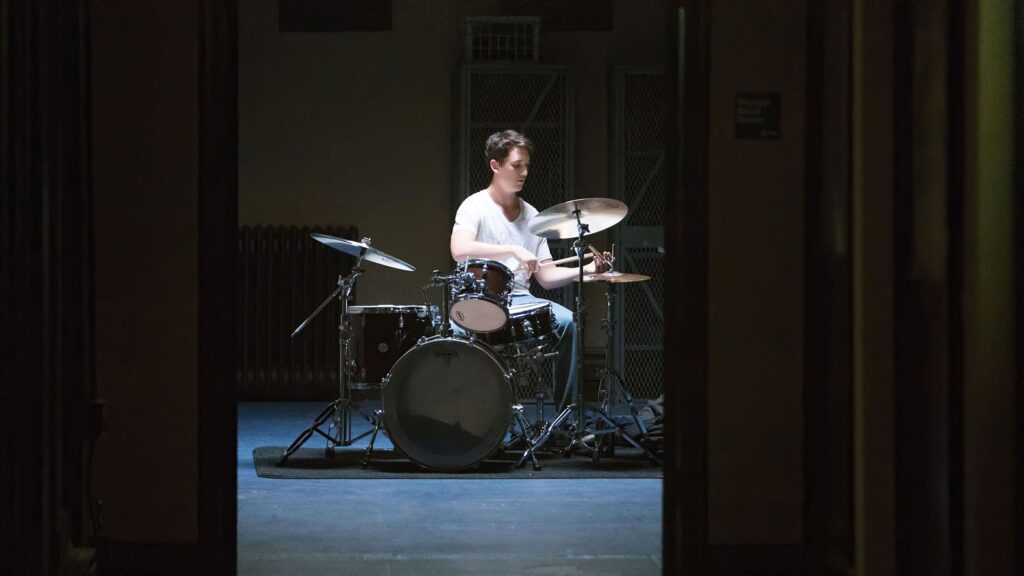
Some popular songs from the Whiplash include:
“Whiplash” – The title track of the film, “Whiplash” is an original composition that serves as the centerpiece of the film’s climactic performance scene. It is a fast-paced, frenetic piece that captures the intensity and passion of jazz drumming.
“Caravan” – A Duke Ellington standard, “Caravan” is performed in the film by the Shaffer Conservatory jazz band. It is a high-energy track that showcases the talents of the film’s musicians.
“Hank Levy Suite” – This is a medley of songs composed by Hank Levy, a jazz composer known for his complex, challenging pieces. It is a particularly important track in the film, as it is the first time that Andrew is truly tested by Fletcher’s harsh teaching methods.
“Upswingin’” – Another original composition by Justin Hurwitz, “Upswingin’” is a lively, upbeat track that captures the joy and excitement of jazz performance.
“Whiplash (End Credits)” – This version of the film’s title track features a longer, more complex arrangement that showcases the talents of the Shaffer Conservatory jazz band. It is a fitting end to the film, as it brings together all of the film’s musical themes into one powerful finale.
You can listen to the original motion picture soundtrack below.
The Cast of Whiplash
- Miles Teller as Andrew Neiman – A 19-year-old jazz drummer who aspires to become one of the greats.
- J.K. Simmons as Terence Fletcher – A highly demanding and abusive music conductor at the prestigious conservatory Andrew attends, who becomes Andrew’s mentor.
- Paul Reiser as Jim Neiman – Andrew’s father, who wants him to succeed but is concerned about his obsession with drumming.
- Melissa Benoist as Nicole – Andrew’s short-lived girlfriend.
- Austin Stowell as Ryan – Andrew’s rival at the conservatory.
- Nate Lang as Carl – One of Andrew’s fellow drummers in the conservatory.
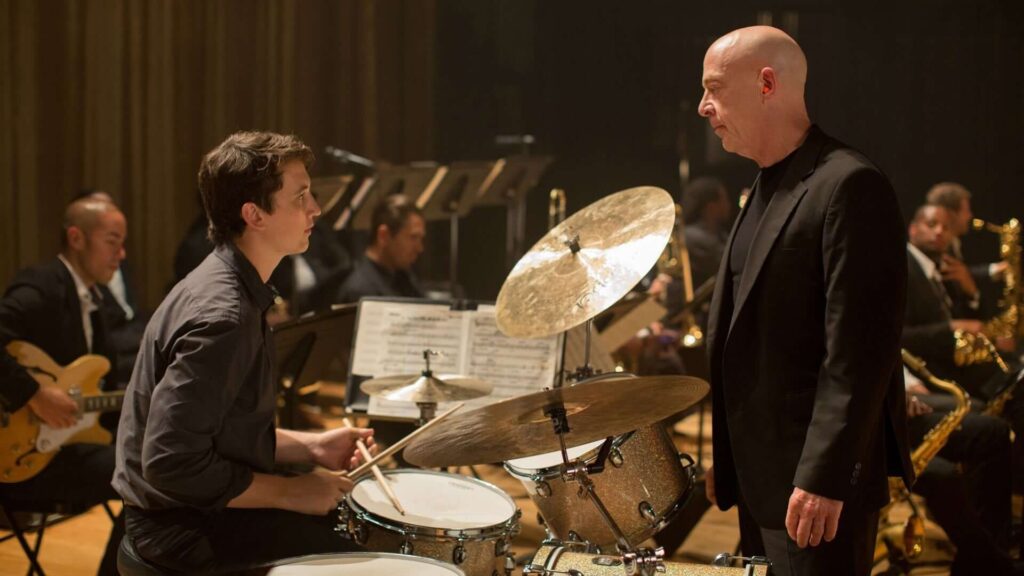
The Filmmakers of Whiplash
- Damien Chazelle – Director and Screenwriter
- Jason Reitman – Producer
- Helen Estabrook – Producer
- David Lancaster – Producer
- Michel Litvak – Producer
- Paul Reiser – Executive Producer
- Couper Samuelson – Executive Producer

Whipped Mashed Potatoes

Inspiration
Movie Title
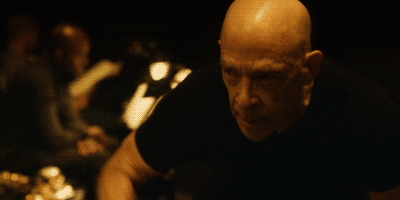
More About Whiplash
Whiplash was primarily filmed in Los Angeles, California, USA. Some of the filming locations include the Los Angeles County High School for the Arts, the Palace Theatre in downtown Los Angeles, and the Orpheum Theatre in downtown Los Angeles.
The movie Whiplash is a work of fiction, and while it contains some elements that are based on the director Damien Chazelle’s personal experiences as a musician, it is not based on a true story. Chazelle has stated in interviews that he drew from his own time as a jazz drummer in high school and college to create the story and characters in the film. However, the specific events and characters in the movie are fictional, and the story is not based on any one person or real-life incident.

